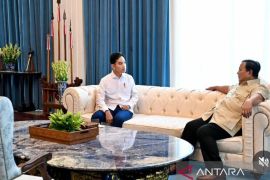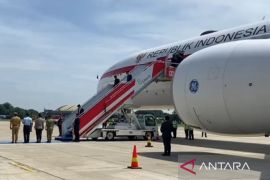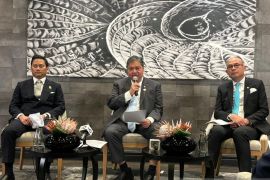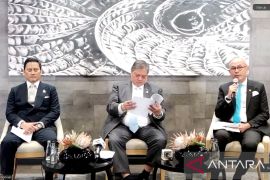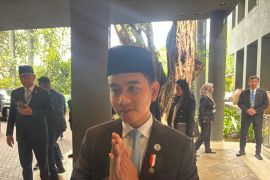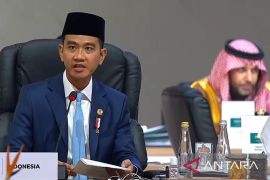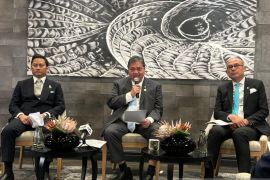Apart from its contribution to environmental sustainability, sustainable investment also plays a vital part in global economic recovery, particularly in the post-COVID-19 pandemic period, as it allows for an ideal situation for the whole world.
Sustainable investment on a small-scale business would encourage the utilization of resources from the surrounding areas, empower local people, and conserve the environment.
It also serves as means to make global investment more durable, thereby enabling it to withstand challenges in future.
In 2022, sustainable investment was extensively promoted in G20.
Investment Minister, Bahlil Lahadalia, called to make the most of the opportunity presented during Indonesia's G20 Presidency to appeal for efforts to support economic transformation.
In G20, Indonesia raises three issues: global health architecture, digital-based economic transformation, and energy transition, which is closely related to sustainability issues.
Indonesia is focusing on using G20 as a platform to encourage an inclusive, sustainable investment, he remarked.
He also noted that Indonesia, through the Trade, Investment, and Industry Working Group (TIIWG), would focus on promoting investment opportunities that would support the economic transformation vision.
They uphold concepts of green energy, green industry, and blue economy in order to implement sustainable investment, he remarked.
Related news: Sustainable investment supports ecosystem for global recovery:Ministry
Related news: Indonesia offers 47 investment projects worth Rp155.12 trillion
Extending project invitation
So what can the government do to push for the sustainable investment agenda?
The government, through the Investment Ministry, offers as many as 47 sustainable investment projects valued at Rp115.12 trillion, placed in some sectors, such as tourism, economic areas, industries, and infrastructures.
The projects were spread across 33 provinces, with nine of them in Java, 11 in Sumatra, six in Kalimantan, nine in Sulawesi, three in Bali and Nusa Tenggara, and nine in Maluku and Papua.
Pre-feasibility study was conducted for the projects, and they would be offered during the G20.
Indonesia will use its privileges, given the G20 presidency, to work with other members to implement synergized policies and economic recovery agendas in sectors, such as trade, investment, and industry, in order to achieve the Sustainable Development Goals.
TIIWG listed sustainable investment as one of the priority issues they were discussing.
Deputy of Investment Planning at the Investment Ministry stated that they expected for Indonesia to participate in realizing the Sustainable Development Goals, which must be achieved by 2030.
No attractive value yet
Although it has a positive impact on the environment, social aspects, and management, it turns out that investors still did not pay much attention to sustainable investment. It was not as yet considered as being interesting, economically.
Bank Mandiri Chief Economist Andry Asmoro named unattractive returns as one of the challenges in developing sustainable investment in Indonesia.
"Hence, sustainable projects, either environmental or social, are still relatively limited because they are considered less profitable. This is the general assumption when we talk about the short-term (benefits)," he stated.
Economic factors cannot be denied as the main aspect for investors to invest their capital. Thus, it is very natural for investors to see how much return they can get once they delve into a project. The reward would enable investors to form their opinion and gauge the attractiveness of sustainable investments as compared to conventional investments.
However, it is not solely a matter of returns. The investors also consider other aspects, such as the special financing structure required for sustainable investment.
"If we look at sustainable projects, whether those related to environmental projects, it requires new technology, large capital, and long-term financing, for which a special financing structure is required as compared to conventional ones. This is what can turn out to be a short-term challenge," he added.
On the other hand, the government's support in the form of incentives is necessary in sustainable investment because it has risks, ranging from natural factors to legal certainty related to bureaucratic problems.
The last challenge is the identification of assets that would require a good information system. In Indonesia, the information system on assets for sustainable investment management is still very limited, so it becomes a challenge to develop sustainable investment.
The Indonesian G20 Presidency is expected to not only echo sustainable investment or other sustainable trends but also accelerate its implementation, so that its effects are tangible for everyone. Likewise, the investment projects offered are expected to be implemented, so that the Indonesian people can immediately enjoy the benefits.
Related news: Minister supports sustainable investment to achieve SDGs targets
Related news: Indonesia to offer 47 sustainable investments in G20
Translator: Ade Irma J, Mecca Yumna
Editor: Sri Haryati
Copyright © ANTARA 2022

